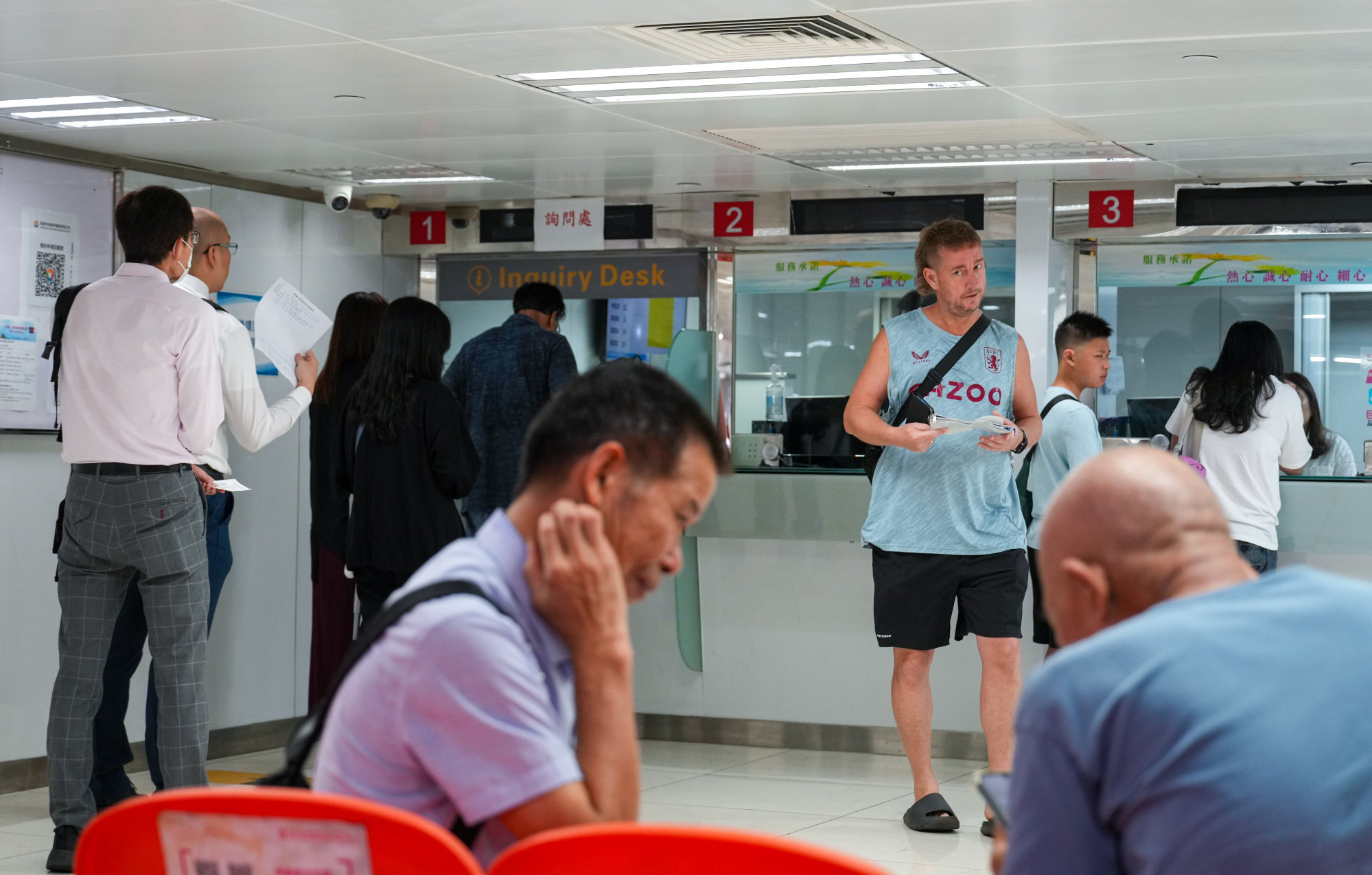Travel
Tycoon among Hongkongers applying for mainland China travel permit on first day

“It just goes to show [the] motherland’s strong support to Hong Kong [under] ‘one country, two systems’,” Ng told the Post at the CTS centre in Sheung Wan.
Other centres across the city also saw a steady stream of foreign nationals arriving throughout the morning.
Sanders Chung Tai-cheung, an 18-year-old Philippines-born Hong Kong resident, arrived at the CTS centre in Mong Kok with his mother before 9am to apply for the new permit for studying purposes.
“I know about the new permit and my school suggested that I apply for this for easier access to the mainland campus,” said Chung said, who is studying media at Shenzhen University’s Hong Kong College.
“This permit will be a game changer as it allows me to have a faster border check multiple times,” he said, adding that it used to take him two hours to clear customs.
But he was not able to proceed with the application as CTS staff advised him to book another appointment after he was unable to provide a mainland phone number.
In Sha Tin, a Canadian national surnamed Chan called the permit “the best measure the government can take”.
“In the past I had to queue for a long time at the border and fill in a form by myself, but it will be way more convenient after the newly issued permit,” said Chan, adding that she felt the application process was “simple”.
Announced on July 1, the new multi-entry permit will allow non-Chinese permanent residents of Hong Kong and Macau to enter the mainland for multiple short-term trips over a period of up to five years. Th activities permitted on these trips include investment, visiting relatives, tourism, business, seminars and cultural exchanges.
Permit holders can spend up to 90 days for each stay on the mainland and enjoy self-service clearance at control checkpoints once they have their fingerprints taken at ports of entry.
Before its introduction, most of the city’s 270,000 adult non-Chinese nationals with permanent residency had to apply for separate visas to visit the mainland.
Under the new permit, eligible residents must apply through China Travel Service (Holdings), the central government agency that issues travel documents for the mainland. Permits will be issued within 20 working days if their applications are successful.
Chief Executive John Lee Ka-chiu has said the new measures would help to enhance Hong Kong’s “unique status and advantages”, while foreign business chambers have said the move would help reinforce the financial hub’s gateway role and international status.

Demand for the permit has surged, with bookings for registering appointments at CTS’ sole Hong Kong Island centre full until July 30, Other centres were fully booked until the end of this week, according to a check by the Post on Tuesday night.
CTS Hong Kong chairman Perry Yiu Pak-leung, who also represents the tourism industry in the legislature, said he hoped the new permit could provide convenience for many looking to apply, especially students.
“We have a lot of young talent and students who may want to spend time and visit the mainland for summer holidays, join study tours or exchanges,” he said at CTS’ Kowloon East centre.
“Considering how long and complicated it is for students to cross the border, we hope this new measure can be more convenient for them.”
But some foreign nationals found themselves turned away after being told they did not have the right documents.
Indian national Wesley Kotian, 59, a stay-at-home father, went to the service centre but did not know he had to apply for a document from the Immigration Department and make an appointment in advance.
“I thought I could just walk in and apply with my Hong Kong ID card,” said Kotian, who has lived in the city for 32 years.
A 46-year-old Indian citizen who was applying in Sha Tin was also turned away by staff for failing to obtain the notice.
“It confuses me because I not only need to apply online, but also need to go to the centre in person” said the 46-year-old man, surnamed Kindu.
Additional reporting by Tom Shuai and Alice Kong







:max_bytes(150000):strip_icc()/roundup-writereditor-loved-deals-tout-f5de51f85de145b2b1eb99cdb7b6cb84.jpg)


